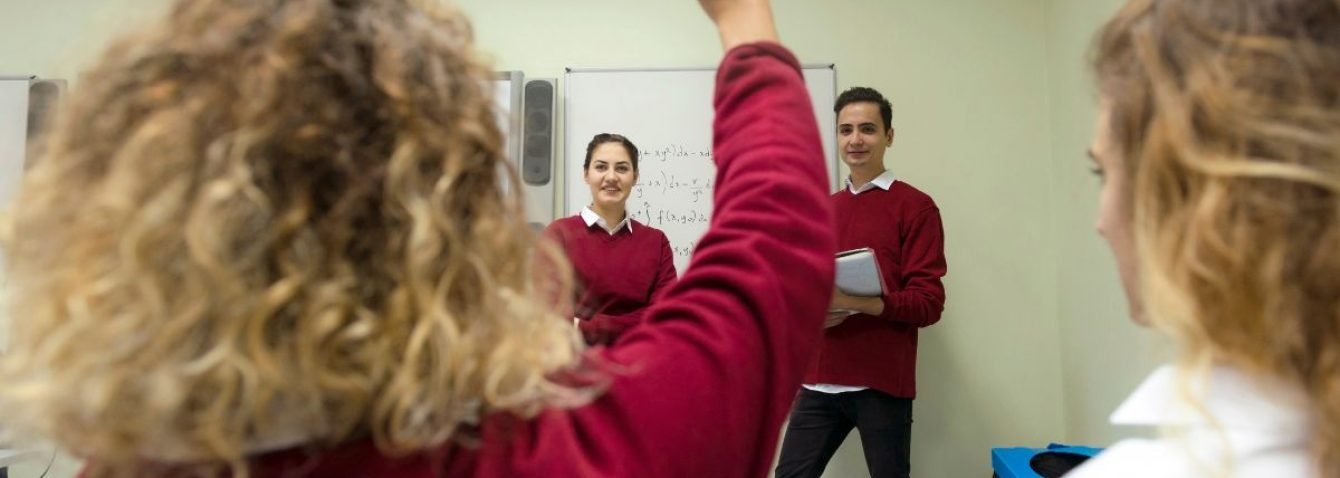
Why including the perimenopause and menopause in the current RSE curriculum is essential
I recently attended a family friends’ 18th birthday party where the birthday boy had a small group of friends round. I was chatting to them around the firepit when one of them asked me the question I dread being asked by young lads, “So what do you do for work, Tiegan?” I told them, “I work for a menopause clinic, do you know what the menopause is?” I’ve been here before and I already know what the answer will be. This is the first they’ve heard of it. Ten minutes later and my work is done. A group of 18 year old boys are now educated on a topic they would have not otherwise heard about for a good few years – let alone learnt about in school.
My experience begs the question… why aren’t we being taught what the perimenopause and menopause is in school?
Over 51% of the population will directly experience symptoms of the perimenopause and menopause. The other 49%? Well they’re the lucky folk that get to live alongside symptomatic partners, friends and colleagues struggling to maintain their emotional stability, intellectual capacity, and professional credibility. Yet the perimenopause and menopause remains in the eyes of many, a dirty word, with the population at large often appearing to run for the hills at any hint of hot flushes.
Perhaps this adverse reaction to the word ‘menopause’ is the reason for the perimenopause and menopause being overlooked in our current Relationships and Sex Education (RSE) curriculum. In fact, the mandatory RSE policy guidance only includes the mention of the perimenopause and menopause once. This mention, falls within the ‘intimate and sexual relationships, including sexual health’ section and states that pupils should be taught the facts about reproductive health, including fertility, and the ‘potential impact of lifestyle on fertility for men and women and menopause’. In this sense, the inclusion is easily interpreted as a tick box exercise as opposed to properly thought out teaching on the topic.
A true education revision is needed. The perimenopause and menopause should be included in its own section of the policy. After all, pupils are told they need to be taught the key facts about puberty, the changing adolescent body and menstrual wellbeing, why not the changes beyond the point of reproductive maturity? The little inclusion of the perimenopause and menopause in the education system is problematic and the idea of not including the perimenopause and menopause in RSE is adverse. Without this knowledge, people remain uninformed on the vast changes that will occur in regard to their future emotional and physiological health.
Whilst the media tends to depict perimenopause and menopause as simply being physical symptoms (such as hot flushes), women can also experience debilitating psychological symptoms such as anxiety and low mood. Research has found that roughly 60% of women will experience perimenopausal and menopausal symptoms and 20% are likely to find these symptoms severe. Women who suffer with psychological symptoms of the perimenopause and menopause are less likely to stay in work and often have negatively affected personal relationships. With this being the case, more education in this area is necessary. Proper education ensures that young people are made aware of the changes that their family members, teachers (and eventually themselves) will be going through.
Teaching young people about the perimenopause and menopause would invoke a change in attitudes, providing an awareness of the importance of being empathetic towards those experiencing symptoms. Such awareness would ensure young people are able to develop the skills needed to appropriately support those around them. Think about how much more helpful the young lads I spoke to would’ve been if they’d known why their mums were struggling with irritability and tiredness!
So what can we do from here? We know that education is capable of reform as we are seeing this being done with the inclusion of pleasure into mainstream RSE. The next steps are to push for the introduction of an education programme in schools that can encourage better preparation and teaching about the perimenopause and menopause. In doing this, we are devising a more inclusive and representative curriculum that appropriately represents a person’s menstrual journey through their life course. Let’s hope the reform comes soon – I’d like to stop giving menopause lessons on my Saturday night.
At the Newson Health Menopause Society, we are currently conducting some research exploring what education our readers received in school on the perimenopause and menopause. We are interested in understanding what you feel should be covered in the current curriculum, particularly what should be prioritised in learning materials. We would love it if you participated in our research by completing our short survey which you can access by following the link.
References
Department for Education (2019) Relationships Education, Relationships and Sex Education (RSE) and Health Education. London: Department for Education.
Griffiths, A. et al. (2010) ‘Women’s Experience of Working Through the Menopause’ report for the British Occupational Health Research Foundation.
Newson, L. (2022) Mental health and emotional wellbeing in the perimenopause and menopause booklet. Manchester: balance. Found at: https://balance-menopause.com/uploads/2022/01/Mental-health-and-emotional-wellbeing-booklet.pdf (Accessed on 31/03/2022).